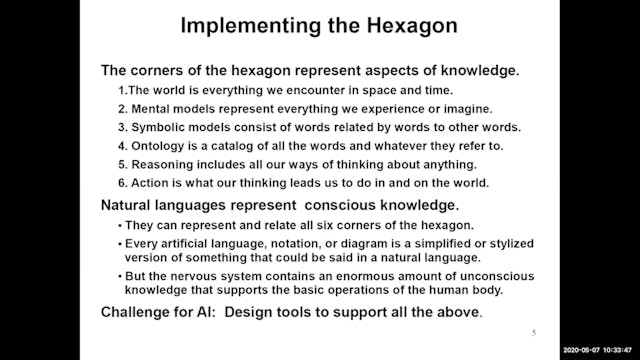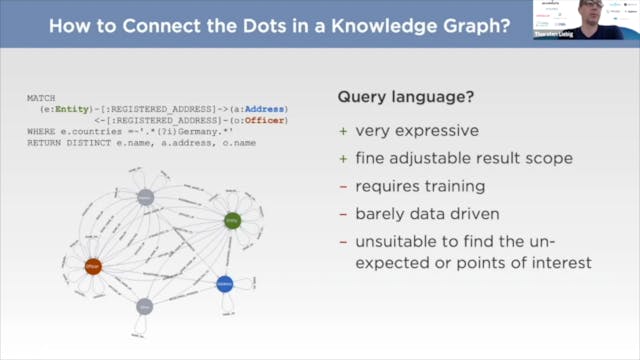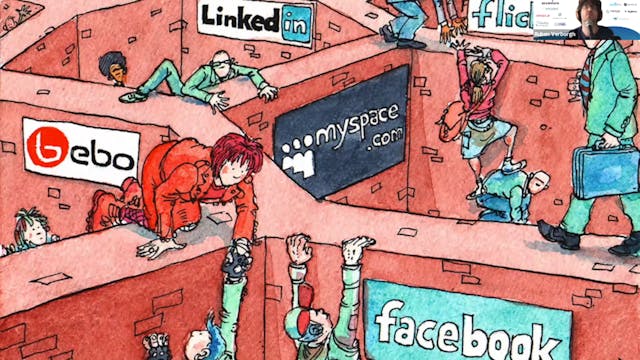Workshop | Personal Health Knowledge Graphs, Part 2
KGC | All Access Subscription
•
5h 41m
Electronic health records (EHRs) have become a popular source of observational health data for learning insights that could inform the treatment of acute medical conditions. Their utility for learning insights for informing preventive care and management of chronic conditions however, has remained limited. For this reason, the addition of social determinants of health (SDoH) [1] and ‘observations of daily living’ (ODL) [2] to the EHR have been proposed. This combination of medical, social, behavioral and lifestyle information about the patient is essential for allowing medical events to be understood in the context of one’s life and conversely, allowing lifestyle choices to be considered jointly with one’s medical context; it would be generated by both patients and their providers and potentially useful to both for decision-making. We propose that the personal health knowledge graph is a semantic representation of a patient’s combined medical records, SDoH and ODLs. While there are some initial efforts to clarify what personal knowledge graphs are [3] and how they may be made specific for health [4, 5], there is still much to be determined with respect to how to operationalize and apply such a knowledge graph in life and in clinical practice. There are challenges in collecting, managing, integrating, and analyzing the data required to populate the knowledge graph, and subsequently in maintaining, reasoning over, and sharing aspects of the knowledge graph. Importantly, we recognize that it would not be fruitful to design a universal personal health knowledge graph, but rather, to be use-case driven. In this workshop, we aim to gather health practitioners, health informaticists, knowledge engineers, and computer scientists working on defining, building, consuming, and integrating personal health knowledge graphs to discuss the challenges and opportunities in this nascent space.
Up Next in KGC | All Access Subscription
-
From Semantic Networks to Knowledge G...
Since the 1960s, semantic networks of various kinds have been used for knowledge representation in AI and NLP. From the mid 1990s to 2005, Tim Berners-Lee and his colleagues adapted that technology to the Semantic Web. During the past 15 years, research in AI and related fields has created new op...
-
Visual Analytics of Large Knowledge G...
Grasping large Knowledge Graphs is challenging. We present SemSpect, an innovative tool that brings together overview and detail view into one perspective by visually aggregating graph nodes and relationships for efficient exploration and data-driven querying of graphs. It comes either with a rea...
-
Personal Knowledge Graphs on the Web
In today’s data-driven economy, the company with the most data wins. This means that companies go through great lengths to collect all of our data, sometimes even crossing ethical boundaries. But in the end, we all lose: having the best data process is not an indication of how well a company inno...



